As part of U.S. Democracy Day, which takes place on September 15, the International Day of Democracy, news outlets across the country write about how democracy works and the risks it faces.
Some Americans think that elections are rigged, which is partly because former president Donald Trump wouldn’t admit that he lost the 2020 election. This has made people question the processes that have long been at the heart of U.S. democracy, and it’s getting harder for the people who work for local governments and are in charge of running elections.
A poll done earlier this year by the Brennan Center for Justice found that more than a third of local election workers across the US have been threatened, harassed, or abused for doing their jobs.
In a podcast with the Bipartisan Policy Center this summer, Maine Secretary of State Shenna Bellows said, “I think we’re in a really troubling moment, an inflection point in our nation’s history because there is a small, well-funded, well-organized, very loud group of people trying to upend our democracy by making threats of violence and stirring up fears.” She stressed that this group was a minority.
Threats against election officials across the country went up in 2022. In response, the Maine legislature passed a law that made poll workers safer and required threats to be reported.
At the time, Bellows said, “Maine’s elections are some of the best run in the country, and that’s due in large part to the hard work and dedication of our local election clerks.” “Keeping our town and city clerks safe from threats of violence or intimidation keeps our elections safe.”
It would have been “unimaginable just a decade ago” for the secretary of state’s office to teach town clerks de-escalation techniques on a daily basis, Bellows said in the podcast.
The more divided the world is becoming, the harder it is for poll officials to do their jobs, and some have even quit.
We’re sorry to say that it’s caused some clerks to retire across the land. A lot of people have left the game. It has made it harder in some situations to find people who want to run our elections. That’s for sure added more stress to a job that is, to be honest, very fulfilling but can also be very stressful, Bellows said.
In Maine, city clerks are very important when it comes to running elections. We talked to town clerks from York to Caribou this summer, between the June primary and the November general election. We wanted to know what they were doing to protect people’s right to vote in a political situation that was changing.
YORK — Lynn Osgood has lived in Maine for eleven generations and says that her job as town clerk and tax collector in York is “not a job, it’s a life.”
She knows that people will ask her about things like car registration, dog licenses, beach passes, and more and more, elections.
She laughed and said, “I don’t go to Hannaford in my loungewear.”
Before he started working as a clerk, Osgood didn’t know how many duties he would have.
She said, “I had no idea what it meant.” “I don’t believe anyone does.”
A big part of that is getting ready for the elections.
This summer, Osgood went to the Augusta Civic Center with municipal clerks from all over the state for a training session. The Cybersecurity and Infrastructure Security Agency took them through made-up situations.
“I saw for the first time how unprepared I am for an emergency at the polls,” she said. “I’ve been so focused on following the rules and laws—making sure I have the right signatures, forms, and did everything the way the secretary of state tells me to open and close the polls and count the votes—that it never even crossed my mind that the election would have to go on in case of an emergency.”
Since then, she has worked on making an emergency plan that covers everything from a foreign object in an absentee vote to an active shooter. She has also chosen a second place to meet in case of a fire or other disaster.
She said, “I have a plan.” “The training was great.”
Even though Osgood doesn’t think York’s politics are as divided as those in other parts of the country, she does think that more people ask her about the voting process than her predecessor did.
“I’m proud of the fact that I’m completely honest about the whole process.” “Anyone is welcome to come in and ask questions to see how we do things, why we do them, and how we make sure the election is fair,” she said.
Osgood said earlier this year that she was asked to talk about it at a meeting of a local Republican group.
“Being able to answer questions was a great chance for me because they had questions and asked them. I did my best to answer the questions.” “And I felt so honored that they gave me that chance,” she said.
Someone asked about how the signatures on absentee ballot envelopes are checked, especially when someone calls and asks for an absentee ticket.
She said that the software she uses has a button called “display signature” that lets her compare what’s on the envelope with the absentee vote to what’s in the state’s system.
A lot of people also asked about voting tools and whether they could be hacked. She said that the tabulators are not linked to the internet and are using software that the office of the Secretary of State sends on a hard drive.
There was also a question about how safe the poll box outside of town hall was.
„And I told them, you know, it’s always being watched on video by the police force. The only person who has the key is me, and there are always two of us when we go get the votes.
“Every time we open that box, we fill out a ballot log that says who took the ballots out and who saw them being taken out,” she said. “That made them feel better there.”
Osgood said it was a long talk, and most of the people who were there seemed calm.
She said, “I felt like I was heard.” “I think they found the answers they were looking for.”
GREENVILLE — People who go to Greenville’s town clerk with sensitive questions, like how to use Maine’s new semi-open primary law, are likely to hear a phrase that makes them feel better.
Firman, who has been in her job for two years, said, “Tammy Firman is Switzerland.” “I stand neutral.”
A new law that went into force before the primaries in June lets unregistered voters in Maine choose between a Republican, Democratic, or Green Independent ballot. They can then only vote in the primary of their choice.
Due to this process, election officials like Firman are getting more active in the political side of things. This, along with the fact that more and more people don’t trust election officials, has put some people on edge, Firman said.
She thinks it’s her duty to convince them that she is objective and on her own.
Firman said, “I respect what you believe.” “We want you to be able to do those things without any pressure from us.”
Firman and her husband spent many years coming to the Greenville area from their home in Virginia, which is close to the Blue Ridge Mountains. Soon after the couple retired in 2022 and moved to Greenville full-time, Firman saw a job posting for a town clerk in the town office.
Firman, who worked as a registered nurse for many years, didn’t think she would even get an interview, but she did apply because she wanted to help a town she has admired for a long time.
He laughed, “They must have been desperate because they hired me.”
Firman is excited about running for president for the first time in November. She is confident in her abilities because she has the help of Bethany Young, the town’s longtime deputy clerk, and a team of skilled, experienced poll workers.
More than anything else, Firman is looking forward to seeing more people go to the polls during presidential elections.
Firman was drawn to the job because of her desire to be involved in her community. She is happy to see the same happening back, even though it adds to her stress to make sure the process of counting is done correctly.
Firman explained, “We really, really go the extra mile to make sure we’re doing everything exactly as we should because I don’t want anyone to think we’re doing anything bad or wrong.”
“I feel good about knowing that we did the best we could at the end of the day.”
TURNER — As town clerk, tax collector, and treasurer, Rebecca Allaire has helped run Turner’s town business for most of the last twenty years. She is in charge of everything from elections to tax liens and foreclosures to town wages.
Allaire said that a lot of work goes into making sure that polls are safe and that everyone’s vote is counted correctly. But people don’t trust politicians as much as they used to, and she thinks the media is to blame.
She said, “People just don’t know the process.”
Like, a few years ago, someone came into the town buildings every day during early voting. Allaire said that they had every right to watch the voting process, but this person kept yelling at election workers for not telling voters one thing or another.
Each polling place has at least two election clerks, one from each of the major political groups. These clerks keep an eye on the process and make sure it runs smoothly.
Allaire said that once a poll clerk hands a voter a ballot, they can’t ask them any questions about the candidates because that might change their mind.
Someone called the Secretary of State’s office more than once about the voting box outside of town halls. The office looked into it and found that the vote box was properly attached to the wall, locked, and couldn’t be moved. It was thought to be safe.
Alley said, “We were doing everything we were supposed to do.” “To be honest, it’s gotten out of hand.”
To make sure that elections are safe and that everyone’s vote is counted correctly, Allaire starts a long time before the actual election.
He does this by handing out nomination papers for local candidates and checking that each name on the returned petitions comes from a registered voter in town.
Clerks have to keep track of every ballot that is sent out for people to vote later. Votes that have been sent back are kept in a safe in a sealed box.
Because it takes three or four people to count postal ballots—one person checks off the name on the envelope against the voter list, another person opens the envelope, and the last person feeds the ballot into the machine—everyone’s vote is kept secret.
There must be the same number of votes at the end of the election as there were at the beginning.
Allaire said that the mood of the election pretty much always rests on the candidates. She thinks that this coming election will have the most scams about how to fix the results.
“Because the secretary of state takes so many steps to protect elections, it’s very, very hard—almost impossible to rig them in Maine,” Allaire said.
For Allaire, she said she is polite to everyone. So, when someone asks her about voting safety, she takes the time to explain it to them because she knows how they feel. Most of the time, that makes them feel better.
“I get it.” “I can see how they would think that if I cast an absentee ballot, I wouldn’t open it up in the office, read it to the girls, and say, ‘Oh look, Suzie voted for that! Can you believe that?'” she replied. “I mean, I can see why they might think that until they know that I’m responsible for those.”
HALLOWELL — Lisa Gilliam, the city clerk of Hallowell, said she first noticed a change in how people felt about voting before the 2016 presidential election, eight years ago.
Gilliam has worked for the city of Winthrop for 30 years. She started her job as a deputy clerk when she was 24 years old. She remembers that it was September and that the race for governor in 1994 was coming up soon.
Gilliam, who is now the clerk for Hallowell, a city of about 2,600 people in Kennebec County, said, “I was so stressed out.”
The secretary of state’s office gave her the training she needed to run for office. In fact, the deputy secretary of state gave Gilliam her own phone number.
She said, “They made sure I got through it and lived.”
After about two years, Gilliam was moved to town clerk in Winthrop, a job she held for almost 18 years. For a long time, elections were pretty “laid back” and even fun. It gave her a chance to see people from town she hadn’t seen in a few years and work with poll clerks, some of whom had been volunteering for years.
Gilliam said that everything changed before the 2016 presidential election. That was the first time she said she noticed any anxiety around elections. At the time, she was city clerk in Gardiner.
Before 2016, Gilliam said, “It was totally different.” “You feel like everyone is looking at you now.”
Clerks are the most important people in local government, and one of their main jobs is to run elections. People in the area used to let Gilliam do it without asking. She said that over the last eight years, she has been getting a lot of angry emails from people “expressing their doubt” about the process.
There was a lot of stress because of COVID. One person Gilliam worked with in Winslow in 2020 kept telling her he thought there was voting fraud going on. So Gilliam asked him to work as a poll worker.
Gilliam said, “He was great.” It was great having him work for me.
He went up to Gilliam at the end of the day and told her, “I trust the process a lot more now that I’ve worked here.”
Gilliam said, “That’s something I will tell people who question it.” Come work with us on election day and see what we do, I tell them.
CARIBOU — Lisa Gilliam, the city clerk of Hallowell, said she first noticed a change in how people felt about voting before the 2016 presidential election, eight years ago.
Gilliam has worked for the city of Winthrop for 30 years. She started her job as a deputy clerk when she was 24 years old. She remembers that it was September and that the race for governor in 1994 was coming up soon.
Gilliam, who is now the clerk for Hallowell, a city of about 2,600 people in Kennebec County, said, “I was so stressed out.”
The secretary of state’s office gave her the training she needed to run for office. In fact, the deputy secretary of state gave Gilliam her own phone number.
She said, “They made sure I got through it and lived.”
After about two years, Gilliam was moved to town clerk in Winthrop, a job she held for almost 18 years. For a long time, elections were pretty “laid back” and even fun. It gave her a chance to see people from town she hadn’t seen in a few years and work with poll clerks, some of whom had been volunteering for years.
Gilliam said that everything changed before the 2016 presidential election. That was the first time she said she noticed any anxiety around elections. At the time, she was city clerk in Gardiner.
Before 2016, Gilliam said, “It was totally different.” “You feel like everyone is looking at you now.”

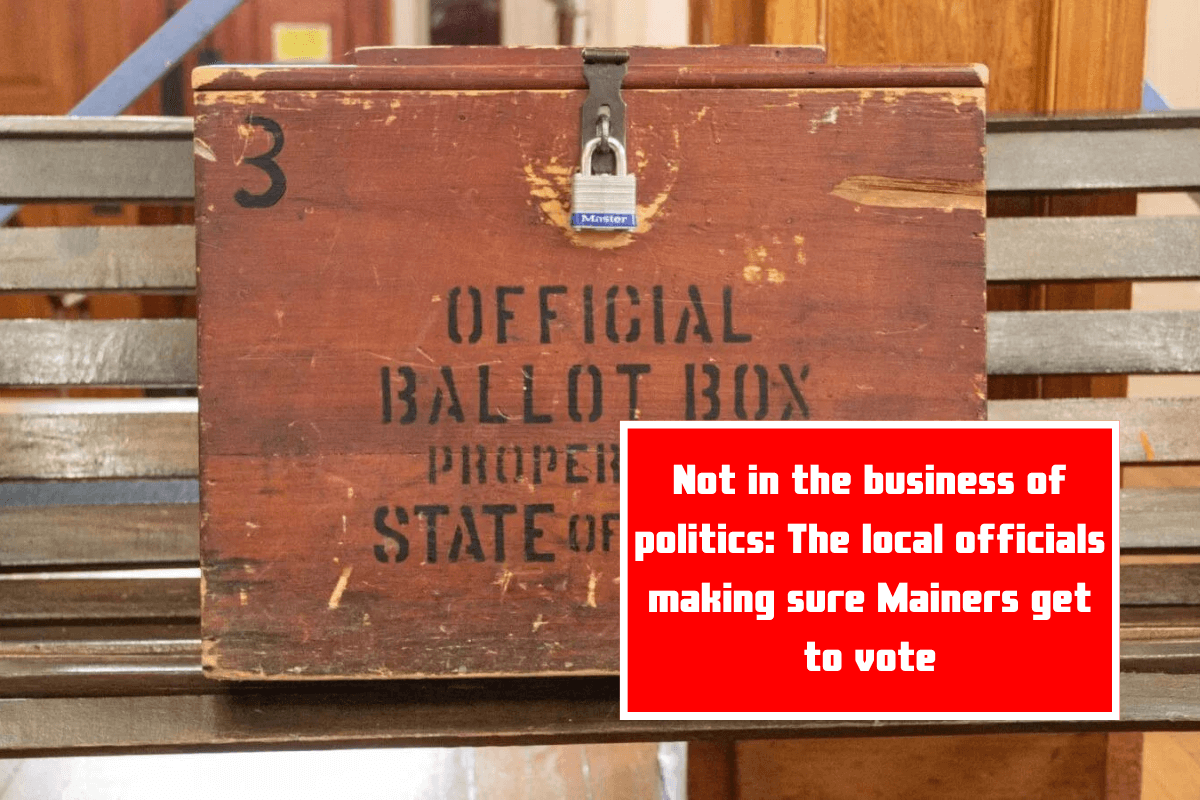
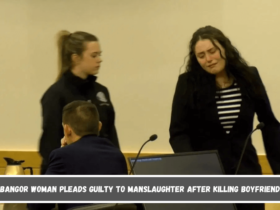


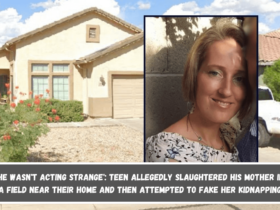

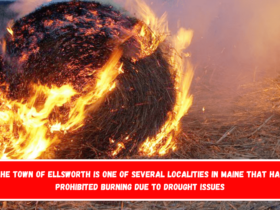


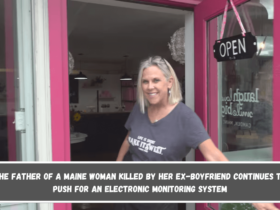
Leave a Reply